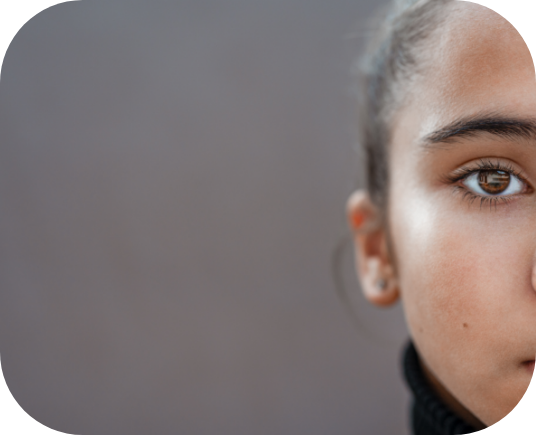

Healthy Relationships
Qualities of Healthy Relationships
Respect is to treat others the way you want to be treated, be considerate, honour someone’s feelings and opinions.
Kindness is treating others the way you want to be treated, the golden rule.
Trust is being honest, matching our words and feelings with our thoughts and actions.
Good Communication is clear, honest, and respectful of others’ feelings. The ability to work through disagreements/arguments and come to a calm understanding.
Independence is being able to do your own thing and have different groups of friends.
Fun is when you have fun together but not at the expense of others (not having fun by picking on other people).
Equality is when no one misuses their power or skills to hurt or control others.
Safety is feeling like your body and emotions are safe with/around this person.
Empathy is being able to see a person’s world with no judgement, understand their feelings and communicate your understanding.
Empathy Statements can help us consider other people’s experiences without judgement. This can help us understand what people may be feeling, and even why they are behaving in a particular way.
- Empathy Statement 1: I saw, and it made me feel… describe what happened and how you felt
- Empathy Statement 2: They may have felt… think about how the person felt when the situation was happening
- Empathy Statement 3: They may need… think about what this person might need immediately and, in the future, to prevent or stop the bullying from happening again
Respecting Personal Boundaries is listening to what someone says, respecting someone’s answer, and not pushing people to do or say things they are not comfortable with.
Understanding is using empathy and understanding other people’s emotions.

You
What Is Self-Esteem and Why Is It Important?
Self-Esteem is how you think and feel about yourself. We can either have positive (think well) or negative (think poorly) self-esteem. Self-esteem influences our overall happiness. Think of it this way: if you loved yourself and saw your own awesome potential, you would believe in yourself to try new things. If you did not do well at something, you would try again! If you did not love yourself, you would be less likely to try something new, value yourself, or be happy. Self-esteem is also influenced by body image and body image influences self-esteem. Body Image is how you view your body (in your mind and when you look in the mirror). How you view your body can be impacted by your self-esteem and cultural ideals of beauty. Valuing Yourself to Have Boundaries Boundaries are so important to your wellness. Boundaries are limits we set for ourselves in our relationships. Healthy boundaries allow us to say “No” to others and be ourselves. Body Boundary is an invisible and personal boundary and set of rules around your body. This can change depending on who you are around. Remember, it is okay to say no!Building Relationships Through Communication
Communication allows us to share what we think, how we feel, what we want, and what we expect. It helps us to share our emotions, feelings, and thoughts. Good communication helps us build our relationships with family and friends.
Types of Communication
- Verbal Communication is based on our words.
- Nonverbal Communication is communication based on our actions (eye contact, body posture, gestures, facial expressions, voice tone, and voice volume).
- Assertive Communication is active communication where you confidently say what you think, feel, and want in a straightforward, positive, and non-threatening way.
“I” Statement is a way of phrasing our communication where we use “I” sentences to state how we are feeling and how the behaviour/action that happened made us feel. We can use it to offer solutions for next time.
Three parts to “I” Statements
- Focusing on how you feel
- Describing what happened (the action or behaviour)
- Offering a solution to the problem
For example, “I am feeling very frustrated. I do not like you wearing my clothes without asking. I know I usually let you wear my clothes, but I would appreciate it if you asked first.”

Consent
Consent is a voluntary agreement between people that they want to do something together. Make sure everyone says yes because they want to and not because they feel pressured to say yes.
Consent is:
- Active, not passive. Only YES means YES!
- Knowing and respecting a person’s own boundaries, as well as the boundaries of others
- Ongoing conversation, not a one-time deal.
Consent Laws in Canada
Legal age of consent to sexual activity with anyone older than you is 16 in Canada.
Under 12
Cannot consent to sexual activity.
Ages 12-13
The law allows for consent to sexual activity with someone less than 2 years older than them.
Ages 14-15
The law allows for consent to sexual activity with someone less than 5 years older unless the person is in a position of power, authority, or influence over the other (then they cannot give consent).
Ages 16+
The law allows for consent to sexual activity with an adult regardless of age, unless the adult is in a position of power, authority, or influence over the youth (then consent cannot be given).
Consent cannot be given (and it does not count if given)
- On someone’s behalf (given by someone else)
- If the other person is in a position of power, trust, or authority (coach, teacher, counsellor, boss, family member)
- If someone is threatened, manipulated or forced
- If someone expresses in words or actions NO (a lack of agreement)
- Actions can include turning away, putting hands/arms up to block the person, stepping back, shaking head no, etc.
- If someone is incapable of giving consent (unconscious, sleeping, under the influence of drugs or alcohol)
- If a person is unconscious, asleep, drunk, high or otherwise intoxicated, they cannot give consent. The person must be alert, of stable mind, conscious, and sober to give consent to sexual activity.

Dealing With Conflict
Conflict is a disagreement (difference of opinion) between people or groups. It can be big or small, and the outcome depends on how we respond, manage our emotions, and choose to resolve the conflict.
Conflict Resolution is how to respond to a conflict, instead of reacting to the conflict.
Four steps to responding to conflict:
- STOP- take a few breaths. Remove yourself from the situation. Pause before hitting send or replying to messages.
- THINK- think about what you want and what the other person wants. Use empathy to try and understand the other person’s point of view.
- FEEL- recognize your feelings. Are you mad, angry, or sad? Make sure you are in control of your feelings and emotions. If you don’t feel in control, go back to Step One and take some time to step away from the conflict and come back later.
- ACT- work to resolve the conflict. When we see conflict as a natural and normal part of our interactions with others, we can focus on finding a solution, rather than deciding who is right or wrong.
Unhealthy Relationships
Qualities of Unhealthy Relationships
Control is when someone makes all the decisions, tells others what to do, and does not let others do what they want. A controlling person might try to isolate a person from family and friends or become jealous. (This is not the same as parents, caregivers, teachers, and coaches having rules and guidelines in your life. The guidelines, rules, and responsibilities are to help you, even if sometimes it does not feel like it!).
Hostility is when one person tries to pick fights with the other person.
Dishonesty is when one person is lying or keeping information from another person. It could also be the person stealing from the other person. This does not include keeping information like a surprise party or a present from the other person.
Disrespect is when the person makes fun of the other person and their opinions or interests. It could also be destroying something which belongs to the other person.
Dependence is when two people feel as though they cannot live without one another, or when one person feels they cannot live without someone else. If the relationship ends or threatens to end, one person may threaten or do something drastic or unhealthy.
Intimidation is when one person tries to control another through fear (like threats of violence, insults, or isolation).
Violence can be physical, emotional, or sexual. Violence might be used to maintain control over the other person.
If you are experiencing any of these in any of your relationships, please ask for help. Tell a trusted adult and they can help you cope with it. Whichever side of the relationship you are on, talk to a trusted adult about how to develop a positive relationship.
Self
Sometimes, we struggle with our self-esteem. There might be times when you do not feel 100% confident. That is okay! If you find yourself struggling with your self-esteem, tell a trusted adult. Low self-esteem can cause unhealthy consequences.
If you have low self-esteem, it can lead to:
- Increased anxiety, stress, loneliness, and depression
- Problems with relationships
- Difficulty concentrating in schools
- Increased risk of using drugs or alcohol
If you are struggling with treating yourself with respect, love, and compassion, talk to someone about it. Remember: for every one negative thing you tell yourself, you need to tell yourself ten positive things to cancel it out. Be kind to yourself!

Others
If you are struggling with unhealthy relationships with others, tell someone you trust who can help you. No matter who the unhealthy relationship is with, seeking help and support will help you cope with the situation. Unhealthy relationships with others can lead to an unhealthy relationship with oneself which can negatively impact your wellbeing. You deserve to be happy!
Signs of Unhealthy Relationships With Others
Any type of relationship can be unhealthy. It can be with a friend, family member, coach, or partner (boyfriend, girlfriend, etc.).
What Are the Signs?
Any type of relationship can be unhealthy. There are many different types of red flags (warnings) of unhealthy relationships. If any of these signs sound like what you are going through, talk to someone about it.
They could include:
- You feel unhappy, weighed down, tired upset, or uncomfortable hanging out with the person. It could also feel this way when you think about hanging out with them or after you hang out with them.
- It feels wrong to hang out with them.
- You are the one who puts in all the effort.
- They use you.
- This could look like them always asking you for stuff but never returning it. This could even be them constantly talking about them and not wanting to hear about you.
- They are much older than you and try to be your friend/partner. They might message you constantly or give you expensive presents. They may make you feel bad for not doing something they want to do even if it makes you uncomfortable.
- While it can seem cool an older person is giving you attention or wants to date, this can be a red flag. They will often use manipulation to get/keep you in the relationship.
- What is manipulation? It is skillfully influencing or controlling a person by using unfair, clever, or deceptive ways. Example: If you don’t do this, I won’t be your friend anymore.
- While it can seem cool an older person is giving you attention or wants to date, this can be a red flag. They will often use manipulation to get/keep you in the relationship.
- They are not supportive of you and the things you find important.
- They are not happy for you when you succeed.
- Communication is poor.
- Resentment.
- Lying/cheating.
- Disrespect.
- Ignoring your needs.
- Isolation. You do not hang out with your loved ones as much anymore.
- You stop taking care of yourself.
- There is violence.
Violence
Any type of violence is not okay in a relationship. The person being harmed does not, nor ever, deserved it. This is unhealthy behaviour. Violence is not limited to being physically harmed.
Violence includes:
the use of words or actions to control, dominate, intimidate, degrade, or intentionally harm another person psychologically.
Including: threats, making fun/overly criticizing, spying, controlling, spreading rumours or secrets, isolating, using the other person (emotionally, physically, financially, or sexually), or forcing/convincing a person to do something they do not want to do.
the use of intentional force on another person to control their behaviour, intimidate or punish.
Examples include: scratching, biting, pushing/shoving, grabbing the person’s clothes, preventing the person from leaving a place, strangulation, or using a weapon.
forcing any form of sexual activity on someone without their consent. Any sexual activity forced on another person is sexual assault.
any situation where one person uses verbal or physical means to obtain sexual activity without consent. This includes pressuring someone into saying yes. This is sexual assault.
any unwelcome sexual advance, request for sexual favours, or other forms of verbal, written, or physical conduct of a sexual nature, like making sexual jokes which make people feel uncomfortable, posting offensive online pictures, name-calling based on someone’s gender or sexual orientation, or unwanted touching.
sending sexually explicit images or messages from one person to another using technology.
The law states that sexting between or regarding anyone under 18 is considered possessing and distributing child pornography. Anyone owning a device or accessing these images can be charged.
The law is concerned with the distribution of images and videos and whether one person in the relationship shares those images with other people or the images are leaked.
Any type of violence in a relationship is not okay regardless of whether it happens once or more than once. Tell someone and seek help. Both parties involved need help either developing the skills for healthy relationships or coping with the impact of the violence.
If someone is using/has used violence against you, remember it is not your fault. It does not reflect your worth.

Abuse
If you are being abused in any of your relationships, tell someone you trust. Even if the person is threatening you or tells you not to tell anyone, you need to tell someone to get help. You deserve to get help.
If you are being abused by an adult in your life, you can call the Child Abuse Hotline at 1-800-387-5437 (KIDS). It is available 24/7 in multiple languages. You can also call the Kids Help Phone for support at 1-800-668-6868.
If you or someone you know is in immediate danger, call 911.
If a friend or someone you know is being abused, tell someone. They need help. You can call the Child Abuse Hotline or a helping/trusted adult.
Trending Topics
Depression
Depression What Is It? Depression is a mood disorder which means it impacts how a person is feeling. It can cause a person to feel
Accidental Overdose
Accidental Overdose What Is it? An overdose is what happens to someone’s body when they take too much of a substance or too many substances.
Online Relationships
Online Relationships Online can be fun! There are games, music, and videos. We can talk to friends and family online. Tips for Being Safe Online:
Online Relationships
Online Relationships Online can be fun! There are games, music, and videos. We can talk to friends and family online. Tips for Being Safe Online:

